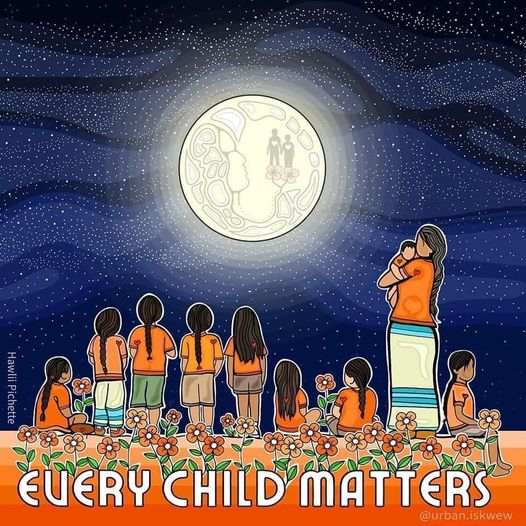
Rotarian Randy Coker introduced Chief Donald Maracle and Wilbert Maracle who attended a residential school from 1943 - 1947. Many people ask "what can I do" and Chief Maracle kindly offered to provide some direction and information in that regard. The residential schools operated in Canada between 1831 and 1996 when the Gordon Residential School in Punnichy, Saskatchewan was closed. Altogether there were 139 recognized residential schools that operated in Canada with 17 in Ontario. The residential schools were created and supported financially by the Canadian government and churches as an attempt to both educate and convert Indigenous youth and to integrate them into Canadian society, however, the schools disrupted lives and communities, causing long-term problems for indigenous people. Children between the ages of 7 and 16 would attend these residential schools and it was estimated 150,000 children attended. Children were forbidden from speaking their language. They were subject to forced haircuts and shaved heads for the boys. Their clothing was taken away. The children never felt loved. The schools neglected to provide sufficient nutrition. Brothers and sisters were separated and segregated with total gender segregation. And sadly there was physical, sexual, mental and spiritual abuse. Records are incomplete, but it is estimated that 6,000 children died at residential schools (4% of attendees). Many children never returned to their families or their culture. The residential school system eradicated Indian identity. They were stripped of their language, their culture and way of life. Chief Maracle believes the Creator is challenging us all to do better.
Indigenous Peoples were initially viewed as the backbone of the economy, supplying fur for the fur trade and were invaluable to both the French and English crowns. After the War of 1812 when there was no enemy on the horizon, Indigenous Peoples were in the way of progress. The government wanted to settle them on reserves, while Europeans colonized their lands. The indigenous people were faithful and fought and served in many wars including the Great War, WWII and Afghanistan but their alliance and allegiance was not reciprocated.
In 2019 the National Centre for Truth and Reconciliation released the names of 2,800 children who died at residential schools with another 1,600 children remaining unnamed. At least 3,200 children died. In May of 2021 the bodies of 215 children were found in a mass, unmarked grave at the site of the former Kamloops Indian Residential School. The Truth and Reconciliation Centre had been told that only 50 deaths had occurred at the school. Since then, more searches have taken place and additional graves have been uncovered. The search continues. The first official government apology came from Prime Minister Stephen Harper in 2008. Canadians needed to become better educated on what actually happened and September 30th is now recognized as a national holiday in order to hear more about indigenous history and to create a better legacy going forward.
Wilbert Maracle was 9 years old when he attended the residential school in Brantford from 1943 to 1947. He was excited to go to the big school with his brother, but when he woke up the next morning, his mom was gone and they had to stay. He cried for 3 months. The curriculum was simple -- reading, writing and arithmetic. He had one teacher he really liked, who was kind to the children. Because Wilbert had experience milking cows he was put in charge of 60 cows, taking them to pasture and milking them, making two trips a day. There was bullying and abuse directed to him by his peers, older boys. The food was very basic, they had to line up. On July 7, 1947 Wilbert was released from the residential school at the age of 13. He had no proper education so was put in Grade 2 which he challenged. He has worked hard all his life even with his limited education and became a welder.
The challenge issued by Chief Maracle is for everyone to respect the cultural identity of all people regardless of the colour of their skin. We have to do better going forward for today and tomorrow. We must all reflect on the tragic and painful history and ongoing impacts of these schools and work towards reconciliation. We cannot change the legacy, but we can write a different legacy for the future. Chief Maracle and Wilbert Maracle were thanked by Birgit Wartenberg, Chair of the Indigenous People Partnership. It was an honour to have both speak today, this third National Day of Truth and Reconciliation.
